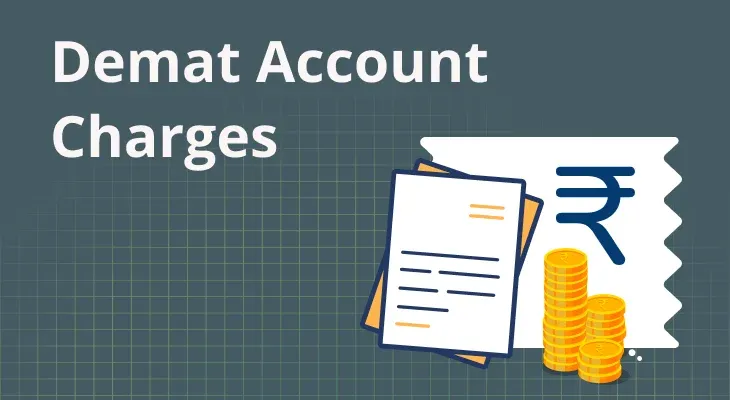Demat accounts have revolutionized how individuals invest and trade in capital markets, offering a seamless and hassle-free experience. Any investor should be aware of the charges involved in maintaining a Demat account, as this is essential for financial awareness and making informed decisions. It’s important to understand the details of the charges involved and the most effective methods to manage them.
If you don’t already have a demat account, you can click here to get started with a free demat account.
So, let’s dive into some smart tips to help you reduce unnecessary Demat account fees. And trust us, it all starts with being aware of the following points:
1. Demat Account Opening Fees
A depository participant (DP), typically a bank or brokerage firm, is responsible for opening a Demat account. The DP acts as an intermediary, helping investors open and manage their Demat accounts. While some DPs charge a modest fee for opening an account, many waive this fee, offering free Demat account openings for the first year to attract customers.
Before investing, it’s important for investors to understand the current account opening charges. While a zero-opening fee can be an attractive offer, it doesn’t necessarily mean premium service or added benefits. Therefore, it is crucial to balance cost considerations with the quality of services provided by the DP before making a decision.
2. The Demat account is governed by annual Maintenance Charges (AMC): A Demat account is subject to Annual Maintenance Charges (AMC), which must be paid yearly to maintain the account once it becomes active. AMCs vary based on factors such as transaction volume, transaction types, and offers made by the DP. Typically, the AMC ranges from Rs. 300 to Rs. 800 annually.
Small investors can sometimes avoid paying these fees altogether. The Basic Services Demat Account (BSDA), a product introduced by SEBI, is aimed at small investors. Maintenance charges are waived for account holders if the balance in the BSDA is less than Rs. 50,000 (referred to as zero maintenance charges). This provides relief to smaller investors, allowing them to participate in the market without incurring significant expenses.
3. Transaction Fees
Demat accounts also incur significant charges, such as transaction fees. The trading activities within the account are subject to fees, and DPs may use various pricing models for transactions. Some charge a fixed fee per transaction, while others compute fees based on transaction volume.
A flat-rate transaction fee plan may be suitable for high-frequency traders, while infrequent investors may prefer a low per-transaction fee. Investors should compare the transaction fee structures of different DPs to find the most cost-effective option based on their trading patterns and frequency.
Demat Charges – How to Minimize Demat Account Charges
The main concern for the majority of investors, especially regular traders, is the Demat charges, which can quickly add up to a significant amount. Here are some suggestions on how to lower these expenses:
- Selecting a Brokerage Firm with Competitive Pricing Plans
Choosing a brokerage firm that offers competitive pricing plans can considerably lower charges. Most firms now charge nominal flat fees regardless of the number of trades. Active traders may find such plans helpful, as they save on transaction costs over time. - Use Zero Account Opening Offers
Many brokerage houses and banks offer promotions where opening an account is free or free for the first year. The initial costs of utilizing services will be affordable while maintaining excellent quality with such promotions. - Basic Service Demat Account (BSDA)
Small investors should open a BSDA to enjoy exemptions on maintenance charges if their balance remains within the prescribed threshold. Individuals with smaller portfolios or less trading activity will find this option more suitable. - Before Choosing a DP
Investors need to study different DP plans, services, and offers before making a final decision. Choosing the right DP that caters to your trading habits and financial needs can save thousands of dollars in the long run.
Choosing Wisely
For a new investor, selecting the appropriate Demat account can provide many quality services at an affordable price. Bajaj Broking offers competitive trading and Demat account plans for both seasoned and new investors. Opening a Demat account with such firms is a quick process, and all formalities can be completed without hassle, ensuring investors receive appropriate services and save on expenses.
The Bottom Line
Understanding the charges related to a Demat account is essential for any investor. All costs associated with opening a Demat account, annual maintenance fees, or even transaction costs contribute to overall trading expenses. By selecting the best DP, utilizing competitive brokerage plans, and taking advantage of BSDA, investors can save money and focus on building their portfolio.
The right Demat account can make a huge difference in your financial journey, whether you’re a beginner investor or an expert trader. Be patient and explore your options to find a plan that fits your budget while offering top-notch service for a seamless and cost-effective trading experience.




